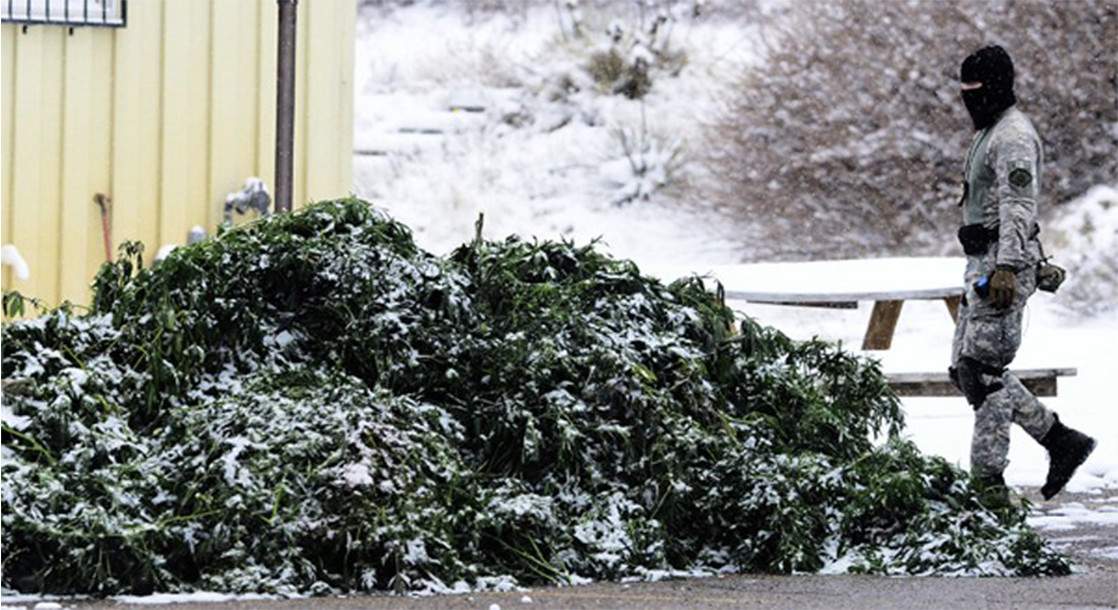To any stoner on the outside, the state of Colorado probably seems like a cannabis-driven utopia stocked limitless strain selection and endless mountain ranges as a backdrop. In reality, residents of the state are quite pleased with the aftermath of passing Amendment 64, which legalized the cultivation, sale, and use of recreational marijuana in Colorado.
Strangely enough, even though Denver has become the clear-cut US cannabis capitol, the city’s police has been confiscating more green than ever before. In fact, the Denver Police Department has seized so much cannabis, that they’re literally running out of space to store it all. Since Amendment 64 passed in 2012, officers have taken an increased number of cannabis plants into their possession. This rise in the amount of confiscation is purely due to the exponential growth that the state’s cannabis industry has seen over last year or so.
“Prior to the legalization with Amendment 64, we received small quantities of marijuana, maybe a couple ounces or a few pounds,” said Lt. Cliff Carney, the officer who manages the evidence and property section for the police department. “After 64, we’re seeing huge seizures that come in. We’ll get sometimes 300 to 400 boxes of marijuana at one time on one seizure.”
That reasoning might seem sound, but the real question on the mind of Denver residents and general cannabis advocates is why are Denver police seizing so much cannabis if it’s now legal? According to Carney, this is because people see legalization as an excuse to exceed the regulated quantities that people are allowed cultivate and possess. Nowadays, grow operations in the state can contain hundreds, sometimes even thousands of cannabis plants.
It seems like the Denver Police Department doesn’t plan to halt their ongoing seizure of unlawful cannabis, as their answer to this storage shortage crisis has been to ask for over $125,000 in resources to hire additional staff and purchase more shelving. At the moment, the department’s downtown headquarters has just two storage rooms that are already filled to capacity with processed cannabis, plants, and other confiscated evidence.
Before disposing of the obtained cannabis by turning it into compost, the police must first get approval from the court, which can sometimes take some time. This has left their evidence rooms stocked with moldy cannabis plants, sometimes weeks old. Processed cannabis has a longer shelf life, and can potentially be returned to its rightful owner pending the court’s decision.
Ultimately, although Denver has become the bastion for cannabis culture and tourism, cultivators and users must still be weary of exceeding the limitations of the law. The Denver Police Department has shown through their recent mass confiscations that they have no problem prosecuting anyone who goes beyond the boundaries set by recreational legalization.











